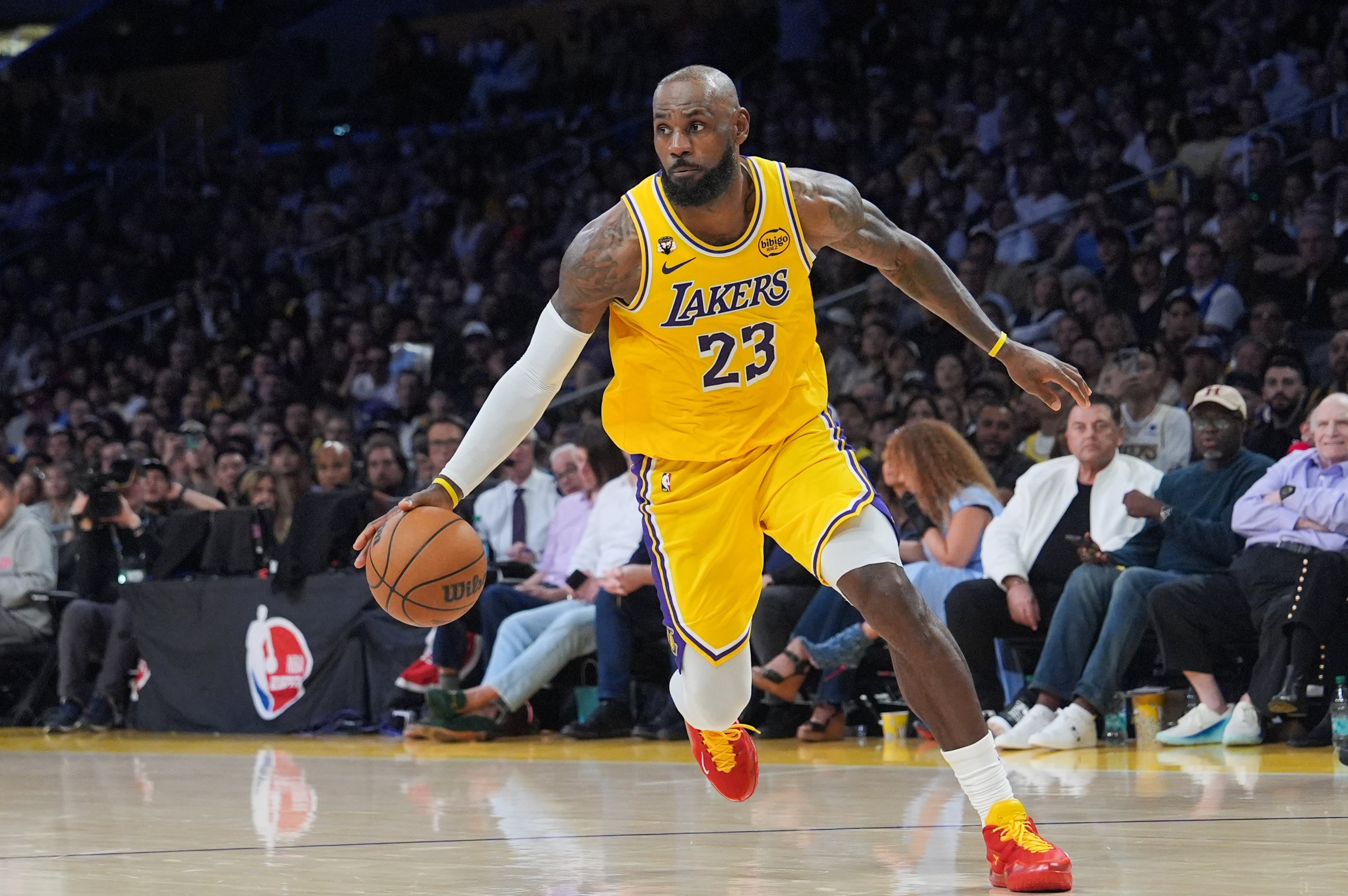Hawks’ Ressler says he makes final decisions, confident in front office

Tony Ressler walked into the interview as he would walk into any business meeting — prepared, confident and holding a yellow legal pad with a page full of notes.
It’s the two-year anniversary of Ressler’s purchase of the Hawks and not everything is moving along to his satisfaction. The team’s win total has dropped each of the past two seasons, and it lost the first two games of a playoff series to Washington, two years after reaching the Eastern Conference finals.
“I’m frustrated as hell,” he said.
But before beginning an exclusive interview with The Atlanta Journal-Constitution, Ressler wanted to a vent. He went through his notes to counter a column I wrote about the state of the Hawks last week and their stature in the city. He believed the viewpoint left the impression that he didn't care, or wasn't trying (neither of which was written or implied). He also wasn't enamored with the online headline: "Hawks are in playoffs and few seem to care — that's a problem." He pointed out the irony of the title because Hawks' night games often finish too late to get into morning editions of the AJC.
On this point, we were in full agreement. I agreed to support his drive to have deadlines pushed back and also offered to write a column supporting any effort he might make to purchase the newspaper. (I suspect this might come up in my next review.)
This has not been an easy season. Ressler acknowledged the Hawks are in “transition” from the team that went to the Eastern Conference finals only two years ago, but he expected them to win more games. There has been criticism from fans and media about how well the front-office team of coach-president of basketball operations Mike Budenholzer and general manager Wes Wilcox is working, and there are significant personnel issues moving forward.
To Ressler's credit, he answered every question. Some of his responses were surprising. He not only expressed confidence in Budenholzer and Wilcox, he said he doesn't expect any significant changes in the front-office structure. That won't go over well.
But the owner also dismissed any suggestion that Budenholzer is the final decision-maker.
“I make the final decision,” he said.
“If you think Bud makes a final decision on everything that we do, you don’t understand the way the Atlanta Hawks are run. … The president of basketball operations is what I say it is, not what you say it is. (Budenholzer) has the loudest voice, not the final word. There’s a dramatic difference.”
So if you didn’t like the decision to sign Dwight Howard, blame Ressler. If you believed it was a mistake to hold onto Paul Millsap at the trade deadline at the risk of losing him for nothing in free agency, like Al Horford, blame Ressler. (He didn’t discount his front office might’ve been divided on the issue of trading Millsap, but maintains when it reached his desk, he responded, to use his acronym, “NFW.”)
On the Horford negotiations, Ressler reminded us that he was in his first year as owner. “I might’ve done some things differently. But at the end of the day, did we make the effort and offer a ton of money? There are so many ways to second-guess, but we tried.”
He's a brilliant businessman who co-founded two private equity forms and has an estimated net worth of $1.67 billion, according to Forbes. So the challenges of owning a basketball team shouldn't seem that great.
But sports ownership is a different animal. It’s remarkable how many people build successful businesses, only to purchase a team as a vanity project and suddenly can’t seem to snap together two Legos.
“I’m learning as I go,” he said. “I’d like to tell you I hit the ground running and I understood completely the role of an owner and the decision-making process. I don’t think I did. I think there was a part of me that hoped it would be a little more of a portfolio company investment, with a CEO out front.”
Points for honesty.
Ressler has negotiated the construction of a $40 million practice facility, purchased a D-League franchise and implemented plans for a major renovation of Philips Arena (with help from Atlanta mayor Kasim Reed, who doesn’t want to lose another team). But on-court success largely hinges on picking the right players, and we can debate how well that has gone since Ressler took ownership.
Ressler lives in Los Angeles, but is in Atlanta every other week on average during the season and seems emotionally and financially invested. He loves basketball and still plays pickup games. So he knows the sport a little.
He understands his decision to stick with Budenholzer and Wilcox may not go over well, but said, “You can’t please everyone. My hope over time is fans will see this effort and the people we have in place are capable of making really good decisions. I have to do what I think is right for the franchise.”
Maybe more surprising is his belief that the 2017 Hawks are a better playoff team than the one that went to the conference finals in 2015. He said this team is deeper and “more playoff ready. We just haven’t shown it yet.” He also somewhat diminished the playoff run two years ago by pointing out the Hawks’ struggles against eight-seeded Brooklyn in the first round and a Washington team in the second round that lost John Wall in Game 3.
That said, those Hawks won 60 games and the postseason was the high-water mark in franchise history. They went into the postseason without Thabo Sefolosha (thanks to an overzealous New York City police officer). They had DeMarre Carroll playing one leg, and Al Horford tossed in a game at Cleveland they were winning, and lost Kyle Korver.
Ultimately, wins and losses decide all debates. Ressler knows this. But he believes the Hawks’ intent to get younger and faster will pay off.
“I think we’re making progress despite winning less games,” he said.
At some point, of course, that will have to change.


